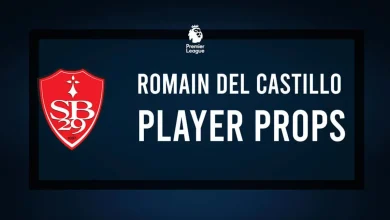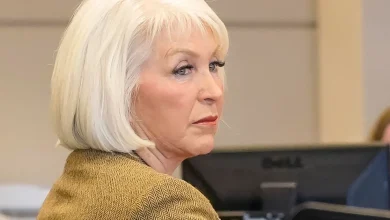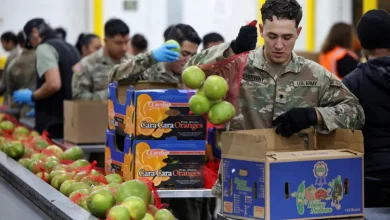Tension mounts in Belarus as leader plans to seize 1,000 trucks at closed border

On The Ground newsletter: Get a weekly dispatch from our international correspondents
Get a weekly dispatch from our international correspondents
Get a weekly international news dispatch
The authoritarian leader of Belarus has issued a stark warning, threatening to seize more than 1,000 Lithuanian lorries currently stranded within his country.
This escalation follows the recent closure of two border crossings by Lithuania, a member of both Nato and the European Union.
The crossings, which were shut on 29 October and are expected to remain closed until at least the end of November, were a direct response to repeated incursions by weather balloons originating from Belarus.
These balloons, reportedly laden with smuggled cigarettes, caused significant disruption to air traffic at the airport in Lithuania’s capital, Vilnius.
Lithuanian soldiers patrol a road near the Lithuania-Belarus border (Copyright 2021 The Associated Press. All rights reserved.)
Lithuanian officials have interpreted these flight disruptions as part of broader anti-Western activities orchestrated by Russia-allied Belarus, designed to undermine regional stability. Lithuania shares a border with Belarus, as well as with Russia’s Kaliningrad exclave.
Belarus President Alexander Lukashenko denounced Lithuania’s move to close the border as a “mad scam” and part of a “hybrid war” against his country. He suggested that Vilnius itself needs to combat smuggling of contraband.
The Belarusian authorities have refused to open a corridor exclusively to evacuate the stranded Lithuanian trucks, demanding that Lithuania fully reopen the border.
Lukashenko said Monday that up to 1,200 Lithuanian trucks were stranded in Belarus because of the closed border, and he warned that Belarusian authorities could seize them if Lithuania fails to reopen it.
“If they don’t do it in the next few days, we will make a decision in accordance with our law,” he said. “Up to the confiscation of the vehicles.”
Lukashenko said the trucks were moved to paid parking areas. “They can’t just loiter on the roads — 1,100 or 1,200 big trucks,” he said.
Erlandas Mikėnas of the Lithuanian National Road Carriers’ Association said in an interview with Radio Free Europe/Radio Liberty that the drivers who were stranded with their vehicles felt increasingly “tired and angry,” and some cargo could get spoiled.
The tensions come as Europe is on high alert after drone intrusions into NATO’s airspace reached an unprecedented scale since September. Some European officials described the incidents as Moscow testing NATO’s response.
Lukashenko noted that Belarusian authorities would raise the Lithuanian border closure in their contacts with Washington.
In August, Lukashenko spoke by phone with U.S. President Donald Trump that sparked speculation of a possible thaw in relations. The following month, Lukashenko pardoned 52 political prisoners as part of a U.S.-brokered deal that eased sanctions on Belarus’ national carrier Belavia, including the resumption of parts supplies and aircraft servicing.
Trump announced Sunday that John Coale, who helped broker the deal, was being nominated as the U.S. special envoy to Belarus and would work on negotiating the release of more prisoners.





